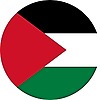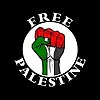HOME | DD
 haseeb3742 — peace for gaza sad anime Kid
haseeb3742 — peace for gaza sad anime Kid

#nomoreviolence #humanitarianaid #conflictresolution #peaceforgaza #peacefulresolution #stopthesuffering #diplomacynotwar #endtheconflict #togetherforpeace #supportgaza #justiceforgaza #gazapeace #gazahope #ceasefirenow #gazareconstruction #solidarityforgaza #gazachildren #mideastpeace #gazaunity #gazarecovery
Published: 2023-10-24 14:50:16 +0000 UTC; Views: 1623; Favourites: 8; Downloads: 11
Redirect to original
Description
Peace in Gaza is a complex and sensitive topic, as the region has been plagued by conflict and violence for many years. Achieving peace in Gaza would entail a resolution of the Israeli-Palestinian conflict, which is characterized by deep-seated political, historical, and religious tensions. Here is a description of what peace in Gaza would ideally entail:
End of Hostilities: Peace in Gaza would first and foremost mean an end to the violent conflicts, including rocket attacks, airstrikes, and ground offensives, that have caused immense suffering for both Israelis and Palestinians.
Two-State Solution: A widely accepted solution for peace in Gaza and the broader Israeli-Palestinian conflict is a two-state solution, which envisions the creation of an independent and sovereign Palestinian state alongside Israel. This would involve clear and recognized borders, with both states coexisting peacefully.
Recognition and Security: In this scenario, both Israel and the future Palestinian state would need to recognize each other's right to exist and ensure each other's security. This would likely involve demilitarization in certain areas and the presence of international peacekeeping forces to maintain security.
Humanitarian Relief: Peace in Gaza would require addressing the humanitarian crises that have resulted from years of conflict. Adequate food, clean water, healthcare, and education would need to be provided to the people of Gaza. This includes assistance to refugees and rebuilding infrastructure.
Economic Development: To sustain peace, there would need to be a focus on economic development in Gaza. This would involve investments in industries, job creation, and economic cooperation between Israel and the Palestinian state.
Political Stability: Establishing a stable and representative government in the Palestinian territories would be essential for lasting peace. This might involve reconciling differences between rival Palestinian factions, such as Fatah and Hamas.
Freedom of Movement: Palestinians in Gaza would ideally have the freedom to move and travel, which has been heavily restricted due to the conflict. Border crossings and checkpoints would need to be managed in a way that ensures security for both sides while allowing for the movement of people and goods.
Cultural and Religious Freedom: A peace agreement would guarantee the rights and freedoms of all people in the region, regardless of their religion or ethnicity. This includes access to religious sites, cultural preservation, and the right to practice one's beliefs.
International Support: The international community, including the United Nations, would play a crucial role in supporting and monitoring any peace agreement. Diplomatic efforts and international aid would be vital for the success of any peace process.
It's important to note that reaching a lasting peace in Gaza and the broader Israeli-Palestinian conflict is an incredibly complex and challenging endeavor, with numerous historical, political, and emotional obstacles to overcome. Different parties have different views on what a peaceful resolution should look like, and negotiations have been ongoing for many years without a final settlement. The pursuit of peace in Gaza requires the dedication and cooperation of all stakeholders involved, as well as a commitment to dialogue, compromise, and reconciliation.
Related content
Comments: 3

👍: 1 ⏩: 0

👍: 1 ⏩: 1

👍: 1 ⏩: 0






























